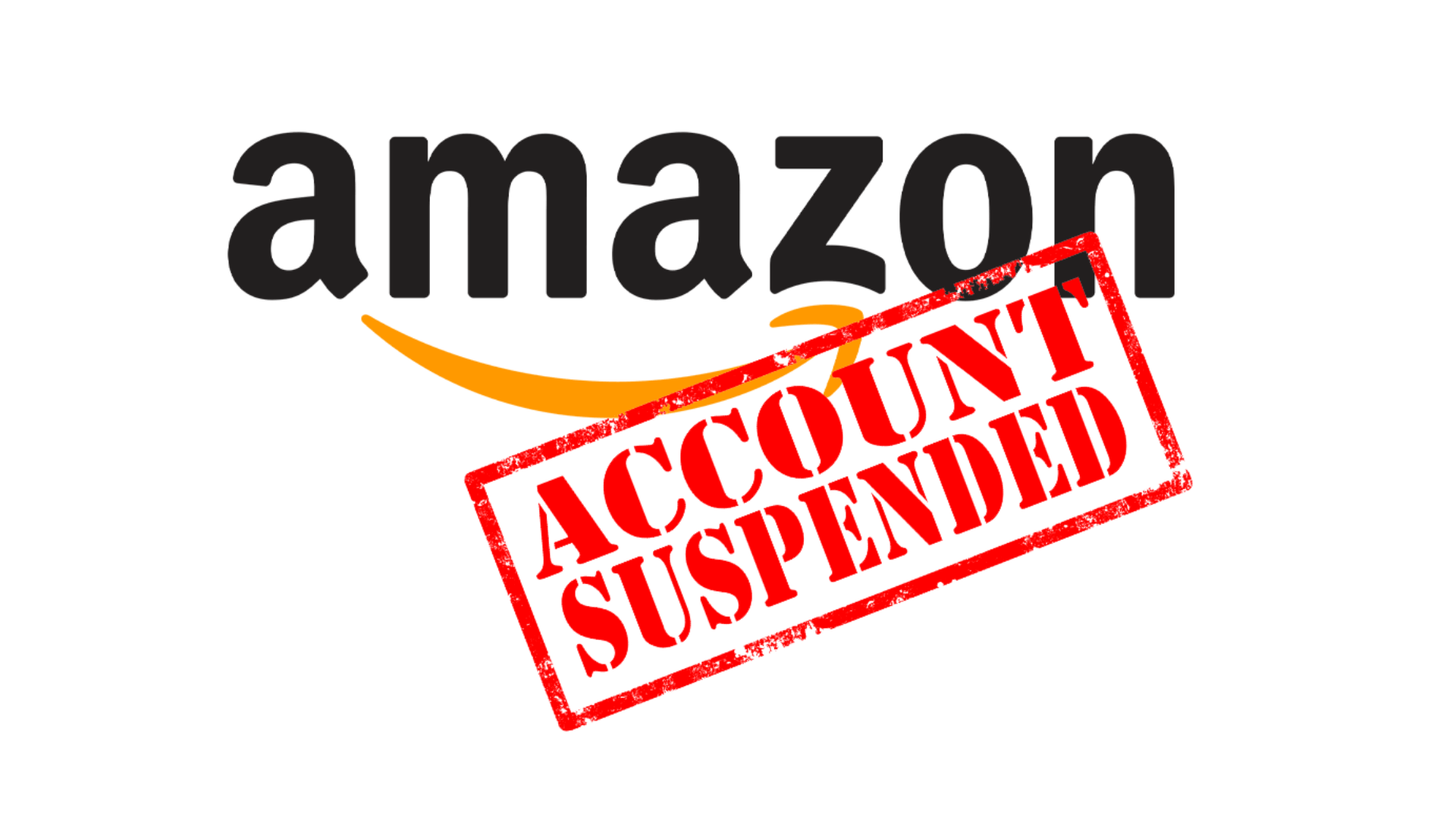Table of Contents
- 1 What Is the Difference?
- 2 Amazon First Sale Doctrine
- 3 Material Differences: What Does This Term Mean?
- 4 Why Are Quality Control Measures Important?
- 5 Effect of the First Sale Doctrine on Amazon Sellers
- 6 What Happens If Complaints Are Overlooked?
- 7 Trademark Law for Amazon Sellers in the US
- 8 What about Online Retail Arbitrage?
- 9 What Is Amazon’s Policy Concerning Online Arbitrage?
- 10 How Are the First Sale Doctrine and Online Retail Arbitrage Connected?
- 11 Conclusion
Whether you are a new or experienced seller on Amazon, account suspension is something you might have to deal with. Unfortunately, many merchants face a common issue and reinstating the profile might be a tedious process. In addition, for many sellers, it is a significant risk to their reputation and income.
While AMZ is pretty straightforward about its guidelines and rules, many users are surprised by getting their accounts terminated. Amazon seller account suspension might cost you hundreds of dollars in lost revenue between the incapacity to sell your goods and the continued inventory costs. Besides, the time, money, and energy you invest attempting to get your profile back in good standing may be exhausting.
While skilled AMZ support representatives can ease the stress of profile suspension, you should do your best to prevent your Amazon seller account terminated altogether. So let’s recap the details of account suspension and analyze when to apply the First Sale Doctrine.

What Is the Difference?
Every day thousands of honest third-party merchants get denied, suspended, or banned by the platform. But what’s the difference between these issues?
- Suspension means sellers still have an opportunity to appeal. They will need to work on an action plan.
- Denied is when the appeal gets rejected by the platform, but you still have some chance to send a revised action plan.
- Banned is your worst scenario of the above three. You are out of the marketplace. Your appeal has failed more than once, and AMZ won’t read your emails anymore.
You might think: Well, I will just create another account… Not so fast — keep in mind that it is against the platform’s terms and conditions. Darn!
Amazon First Sale Doctrine
The first sale doctrine says that every buyer should have the right to resell an item as long as it remains the same. That’s why it’s okay for these sellers to display and resell items that are branded. They won’t be filed and get suspended for this. Thus, once products are legally purchased, the site’s first sale doctrine allows a buyer to go sell the product again.
However, everyone must know that the First Sale Doctrine applies only in the United States and cannot be used in Europe.
Nevertheless, there are still exclusions to this rule. For instance, sellers from Amazon must be informed of Material Differences and Consumer Confusion.
Material Differences: What Does This Term Mean?
This term shows an obvious alteration between the original item the seller bought and the same item he/she has sold by reselling. The item a merchandiser resells should be sold in the same state as the original for it to be legitimate. One should notice the change to the degree that it’ll cause a “Consumer Confusion” regarding the item’s origin.
Amazon merchandisers reselling genuine items quite different from the original can be subject to intellectual property infringement. It is because these resold products are no longer considered authentic by law. Thus, complaints concerning this issue will risk Amazon account suspension.
Note that this law isn’t only limited to the external properties of an item, but it also extends to quality control measures, money-back guarantees, and warranties. These properties should be provided and strictly adhered to by resellers for the items to be deemed authentic.
For example, an Amazon seller attorney tries to talk with intellectual property rights owners on their clients’ behalf to withdraw complaints and stop account suspension.
Nonetheless, even if such items their customers are displaying are genuine, or if they bought them directly from a licensed distributor, ignoring guarantees for customer satisfaction will still make the First Sale Doctrine useless.

Why Are Quality Control Measures Important?
Most brands and manufacturers implement quality control measures to keep their products consistent. Furthermore, they require both their distributors and suppliers to follow and maintain these measures should they desire to keep on dealing with their products.
Quality control ensures that every item made will satisfy every customer it reaches.
AMZ sellers must carefully check and see that their resell brands don’t have strict quality control measures. Note that every federal court in the US considers goods as “materially different” if they do not meet the brand owner’s quality control standards.
Effect of the First Sale Doctrine on Amazon Sellers
These doctrine exceptions of the first sale have become more prevalent in the Amazon platform as increasing infringement complaints continue. So it is with the great possibility that sellers who fail to meet customer satisfaction through quality control and money-back guarantees lose their businesses.
What Happens If Complaints Are Overlooked?
Normally, when Amazon sellers get complaints concerning intellectual property, the right thing to contact the complainant and ask them based on their complaint.
The process typically involves the letter and email exchange between the rights owner and the seller. Once a rights owner allows the situation to reach the court, the accused must be notified by the forthcoming lawsuit.
If the accused party disregards the notice, the rights owner will have the upper hand by taking advantage of a “default judgment.” And if the accused party fails to act on the case, the court will favor the complainant by default judgment.
Here, the Amazon seller is subject to default judgment if they ignore the complaint, especially when it reaches the court. Note that an issue sent to the court does not stop at the consequence of being suspended alone.
Moreover, courts can apply personal jurisdiction over the AMZ Sellers they suspect are practising intellectual property infringement. Such personal jurisdiction is the court’s power over persons who are part of a lawsuit, and it is applied when both parties involved live in various states. This jurisdiction exists if the defendants insist on selling illegitimate products online.
Therefore, the rights owner can force the seller to be present at court right in their state should the seller fail to respond properly to their notices.
Trademark Law for Amazon Sellers in the US
A trademark is a logo or word that distinguishes a brand. So, when you see the Adidas sign or the Nike check on a pair of shoes, you’ll know what kind of items they sell and the quality they maintain.
Applying for a trademark is simple and easy. You can fill out forms online at USPTO.gov. It stands for the United States Patent and Trademark Office. It takes only a short period to fill up the forms, and it will not cost you a lot.
If a problem arises on the seller’s part, they will be given a notice. This process will probably take six months to a year to approve a trademark.
Copyright law refers to pictures, images, and words. So, when a seller displays digital content of a product on the platform, they are protected by the copyright act. Amazon gives its sellers an eternal license to be part of product listings, so they are not breaking any copyright law against copyright owners or copyright holders.
However, if a seller steals a copy of a copyrighted work from a different website and begins to create a listing, that violates copyright law.
Copyright is an innovation; once you create your vocabulary, you own it- even with distributed copies. Whether you file with the copyright office or not, if you own it and use it, you are safe even if you cannot administer it in court.
Patent law, however, is more complicated. This law has two different types: Utility and Design. A utility patent protects how a product works, while a design patent protects how the product looks. Both of these laws are applicable for twenty years and expire after.
What about Online Retail Arbitrage?
It is a marketing strategy that many Amazon sellers use. When the seller displays a product for sale, but in reality, they don’t physically possess the item.
The process involves listing products on AMZ for sale, and the moment a client buys an item, the seller immediately sends the necessary details to an outside website. The outside website is the primary seller of the product and Is also the one who is ultimately responsible for arranging the shipment for the customer.
Amazon suspension attorneys have seen a valuable increase in sellers’ suspension cases due to some sellers’ association with retail arbitrage.
What Is Amazon’s Policy Concerning Online Arbitrage?
Even though several sellers easily escape with online arbitrage, in the end, these Amazon sellers will lose their fortunes in time. Moreover, many sellers were already suspended due to resistance to abiding by the policy of Amazon. So, what does this policy say?
Below are actions not allowed on the platform when selling items through the site:
- Purchasing items from a different online retailer and let them ship the order directly to the customer.
- Shipping items, invoices, packing slips, and information of a different seller.
Failing or resisting to follow these requirements will lead to suspension or worse- not being permitted to further sell anymore.
Amazon made it very clear on its website that online retail arbitrage is prohibited, yet numerous sellers still practice it. Several sellers are uninformed regarding this policy, but Amazon has been starting to implement this policy strictly.
Even with this information, some sellers are simply ignorant and are ready to harvest the consequences of their actions for the high-profit margins they gain through online arbitrage.
How Are the First Sale Doctrine and Online Retail Arbitrage Connected?
Amazon has been starting to deal with those purposefully violating their policy concerning retail arbitrage online, and several well-known brands are also following this process.
Some lawyers of Amazon sellers have been asserting that the First Sale Doctrine should not be applied to sellers who are persistently involving themselves in retail arbitrage online.
Why? Because a seller involved in this illegal activity has not even taken hold of any of the items they’re displaying for sale.
Therefore, the doctrine doesn’t apply to sellers simply dropshipping items using a different website without a first legal sale.
Conclusion
In reality, most Amazon sellers just really are looking to make more money and avoid account suspensions from happening. In addition, intellectual property concerns can be difficult. Therefore, it is essential to know the fundamentals relating to the relevant business laws.
Brand name sellers in Amazon should comply with first sale doctrine exceptions to avoid unwanted trouble.

